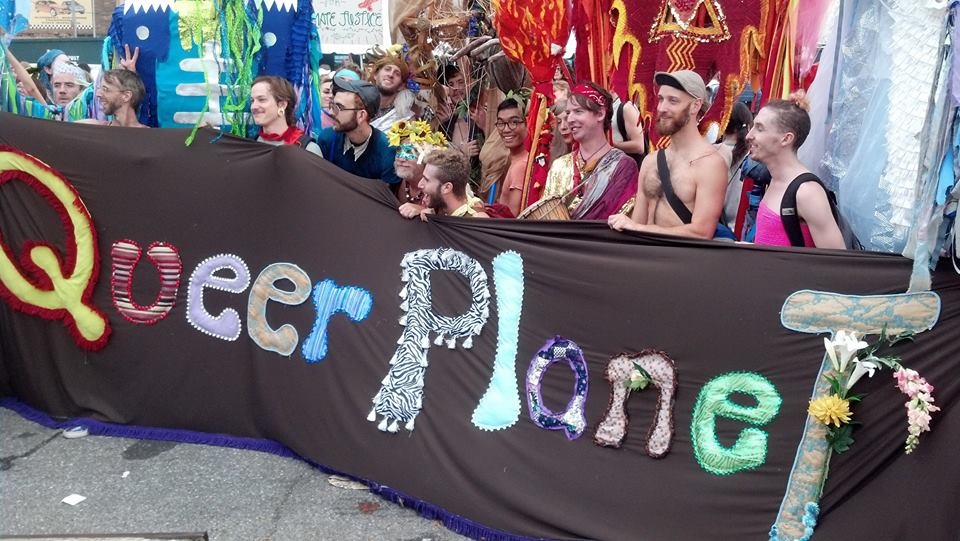June is Pride month! Let’s learn a little more about the contributions of Queer and Trans people to fight against environmental destruction, as well as how they may be disproportionately impacted by the climate crisis.
While climate change definitely impacts all people, a lot of evidence shows that vulnerable groups are hit hardest, and LGBTQ2S+ people are often on the frontlines of disaster. In the United States, some of the people most vulnerable to extreme weather patterns are those who lack stable housing, and Queer and Trans youth are 120% more likely to experience houselessness than other groups (source). Currently, Queer and Trans youths make up an estimated 40% of the houseless population in the US. A person’s race or ability combined with underfunded shelters can also lead to compounding marginalization. When heat waves, cold snaps, hurricanes, fires, and smoke hit a community, houseless Queer and Trans people are often left with inadequate support.
But this intersection goes far beyond western understandings of Queerness. For centuries, Two Spirit Indigenous people have been on the front lines of fighting against climate change even while their identities have been oppressed by colonial powers. Two Spirits are Indigenous people who are believed to possess both feminine and masculine spirits and play a sacred role in bridging “vastly opposite planes of existence” and creating balance within a community (source).
When European settlers colonized North America, western gender + sexuality norms clashed with Indigenous traditions, and Two Spirit identities were suppressed along with their communities and their connections to land and nature. For many Two Spirits, reclaiming sovereignty over their bodies is seen as an extension of reclaiming sovereignty of their homelands.
Click here to learn more about Two Spirits and their role in the environmental justice movement!
This issue also has big implications on an international scale. Climate change is already leading to the displacement of around 20 million people each year, which can cause them to become migrants or refugees (source). 71 nations around the globe actively criminalize homosexuality, and many of these are hotspots for the refugee crisis.

Climate change compounds with persecution of Queer and Trans people, making them more likely to become refugees. They also face systemic barriers in making immigration and asylum claims (source). For example, transgender people may be forced to de-transition or closet themselves in order to claim asylum because many countries don’t accept refugees who’s gender presentation doesn’t match the marker on their documents.
It’s clear that when tackling the climate crisis, decision makers need to consider the unique experiences of Queer and Trans people to make sure not to leave them behind.
Oregon State University in Corvallis, Oregon, is located within the traditional homelands of the Mary’s River or Ampinefu Band of Kalapuya. Following the Willamette Valley Treaty of 1855, Kalapuya people were forcibly removed to reservations in Western Oregon. Today, living descendants of these people are a part of the Confederated Tribes of Grand Ronde Community of Oregon (grandronde.org) and the Confederated Tribes of the Siletz Indians (ctsi.nsn.us).
CATEGORIES: Community Sustainability Native Tribes



